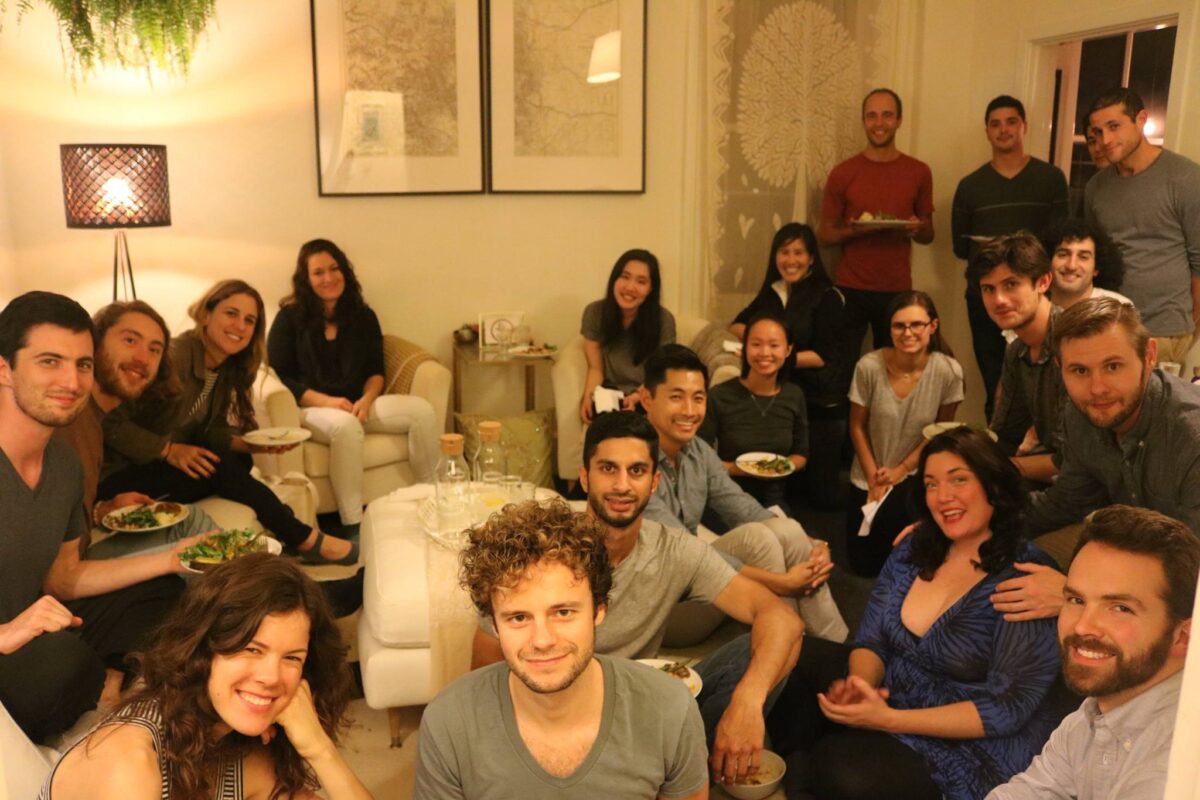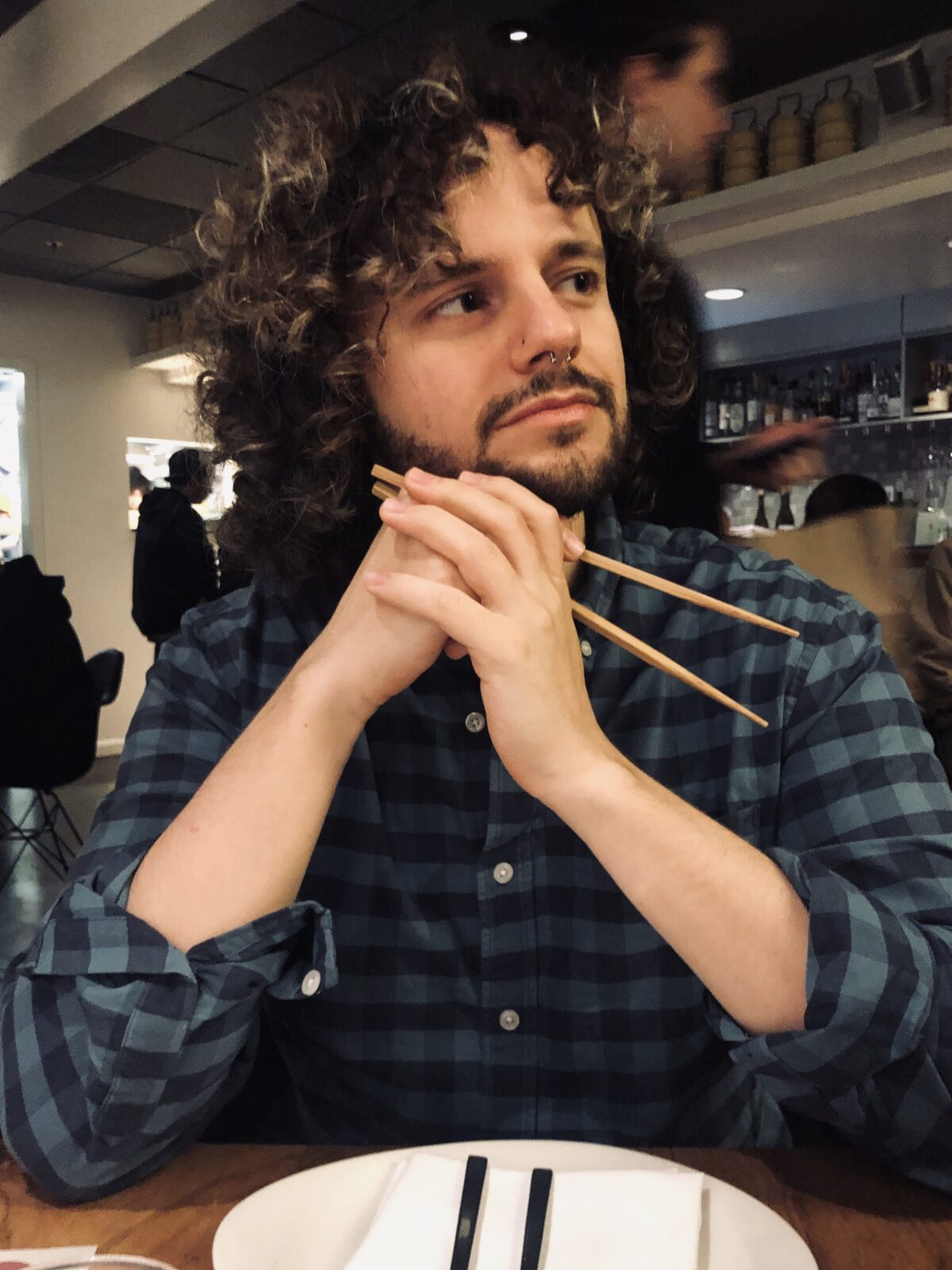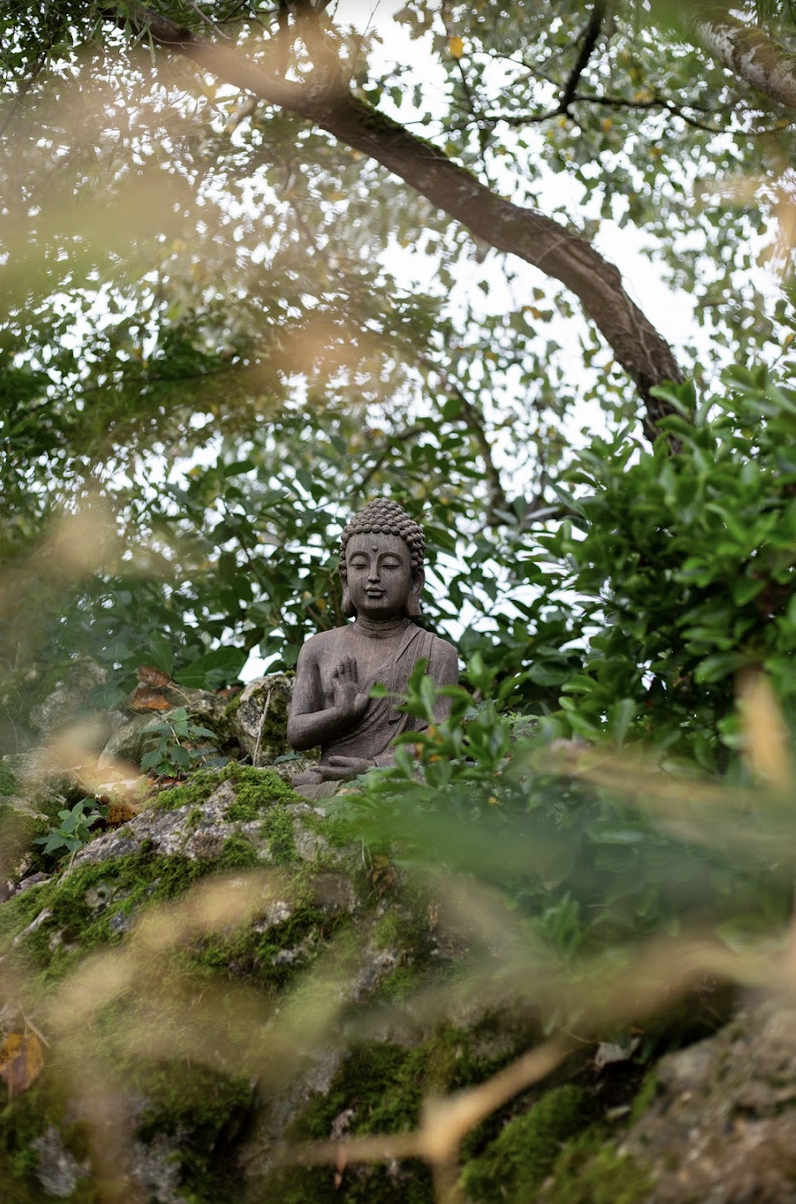by Lewis King
Dear friends,
I’m honored to represent Wake Up this issue in what will be a regular column that represents young practitioners from the Wake Up movement, a global community of Plum Village mindfulness practitioners aged eighteen through thirty-five.
As I reflect on the journey through life that brought me to become a Plum Village practitioner, a smile spreads across my face. Growing up Catholic in Texas,
by Lewis King
Dear friends,
I’m honored to represent Wake Up this issue in what will be a regular column that represents young practitioners from the Wake Up movement, a global community of Plum Village mindfulness practitioners aged eighteen through thirty-five.
As I reflect on the journey through life that brought me to become a Plum Village practitioner, a smile spreads across my face. Growing up Catholic in Texas, I had heard of meditation but never practiced it. And, to me, Buddhism was a distant idea practiced by people I would never meet. Little did I know, there were passionate practitioners all around me in Texas and beyond!
My first exposure to Thầy’s teachings came in the form of a chance lifeline from a passing coworker. We were both going through challenging breakups, and he handed me a copy of True Love by Thích Nhất Hạnh that irreversibly changed my life. Up to this point, I was struggling with substance abuse and persistent sadness. Upon reading the pages, I learned about how true love consists of four elements: loving kindness, compassion, joy, and equanimity. I quickly realized that many or all of these elements were lacking in what I had considered some of my closest relationships. I became a sponge for Thầy’s books and Dharma talks. That said, I had not yet found Sangha and I was struggling with emotional pain and insecurities that generally kept me in a state of unease.
In 2017, two major changes occurred in quick succession: I decided to take a break from alcohol and I found my first Wake Up Sangha in San Francisco. The group was steeped in beginner’s mind and abundant joy. It became my refuge—a group that truly cared about my spiritual development and treated me with respect for where I was in life. The same year, many folks from Wake Up SF traveled to Plum Village, France together for the international Wake Up retreat. This opportune meeting forged bonds across the globe for Wake Up. It was there where I met the folks who would become the Wake Up coordinator global family and the caretaking councils (CTCs) for North America and Europe. Today, nearly five years later, I’m proud to say I’ve abstained from alcohol and upheld the Five Mindfulness Trainings through a vegan diet and loving relationships.

Wake Up Thanksgiving; photo courtesy of Lewis King
I am consistently impressed with how Wake Up groups show up in the world. They continue to be spaces that foster Engaged Buddhism. Wake Uppers are a diverse group: 34 percent of North American Wake Uppers (NA WU) surveyed in 2021 identify as LGBTQIA+, and 40 percent identify as non-white. This directly shapes our goals and aspirations as a group. For example, the subcommittees of the NA WU CTC are “BIPOC and social justice” and “LGBTQIA+ representation.” We answer questions for Sanghas all over North America. We are focused on making sure that social justice is at the forefront of Sangha activity and that underrepresented Sangha members feel at home in our Sangha family.
It’s amazing to see international queer retreats forming organically in our tradition. Even in just the last few years, there have been numerous “rainbow” Sanghas that meet virtually. This has given an opportunity for LGBTQIA+ people from across the globe to come together. An unexpected upside of the tragic COVID-19 pandemic is the movement of many Sanghas to hold hybrid or fully online meetings, which helps ease the pain of some underrepresented people living in geographical “Sangha deserts” by providing a live platform for connecting with people who are looking for the same types of support.
As the number and the types of Sanghas (e.g., Wake Up, Rainbow, BIPOC), continue to grow, I optimistically look toward the future. My wish is for more people to experience the genuine emotions evoked by Thầy’s words and the earnest care that I’ve consistently felt in Plum Village retreat spaces. And as this generation of Wake Uppers “ages out” of the group, my aspiration is that we set a fertile ground for the next generation of young people to explore their minds and the world in a supported and nourishing way.
For more information about Wake Up, visit wkup.org.
Edited by Hisae Matsuda and Brother Pháp Lưu.

Lewis King, Full Moon Courage of the Heart (pronouns he/him), is a Wake Up practitioner living in Austin, TX, USA, who practices with Wake Up Austin and Plum Blossom Sanghas. He serves as the Wake Up coordinator for North America. His hobbies include being in the sunshine, solving technical problems for others, and playing with foster kittens.

